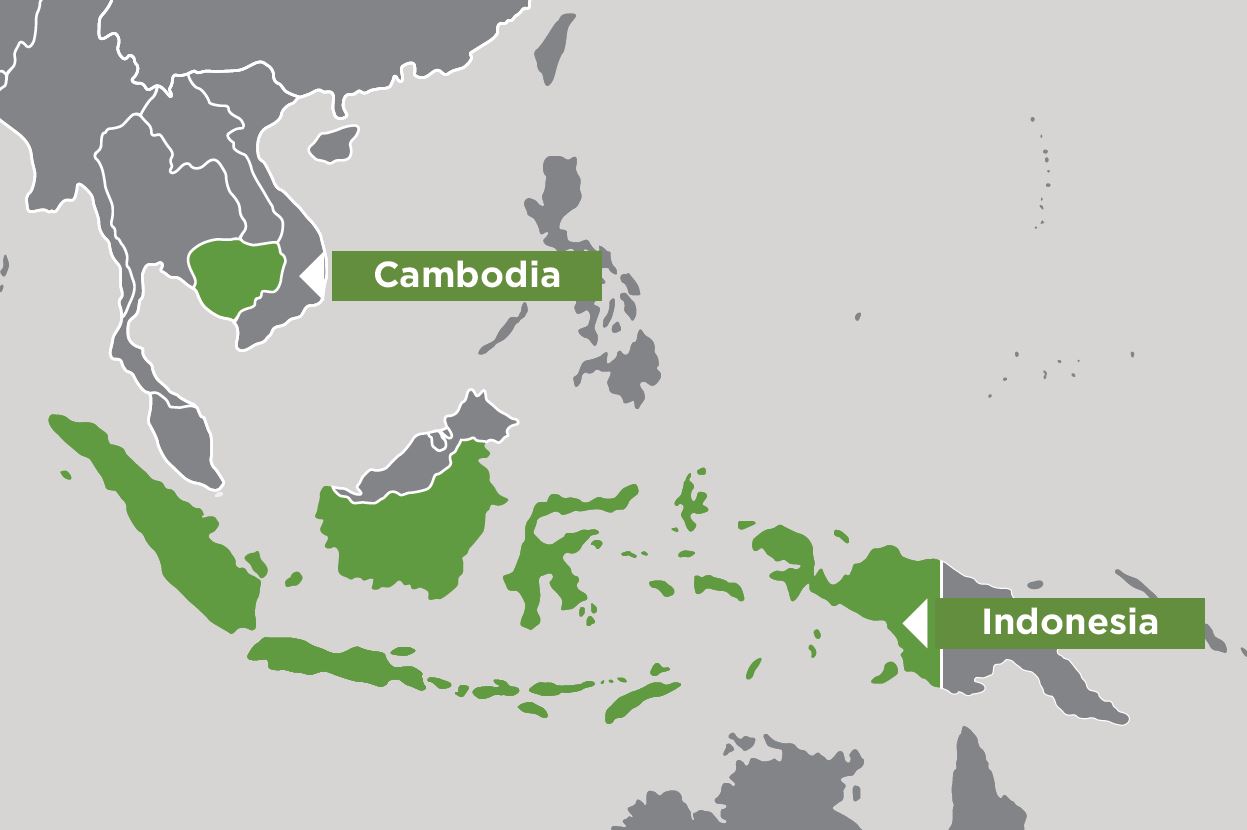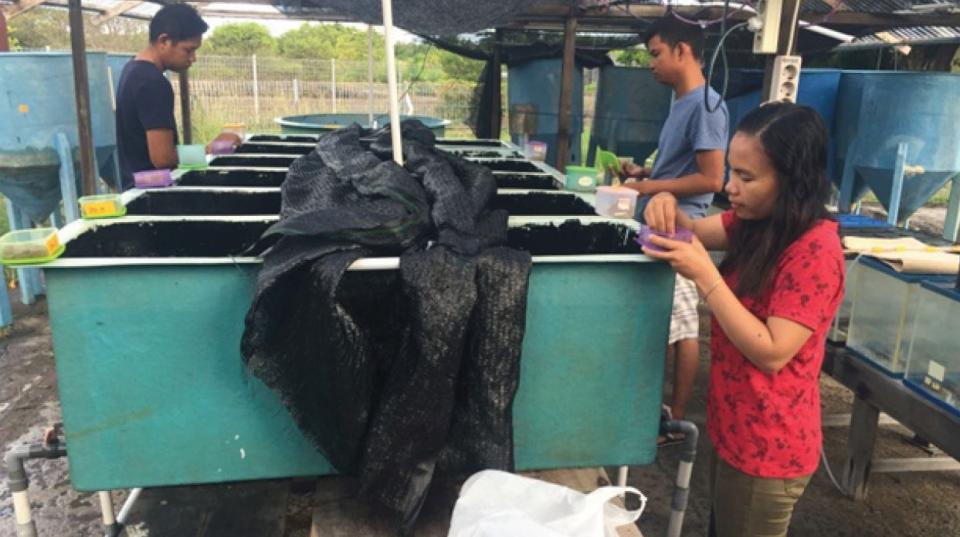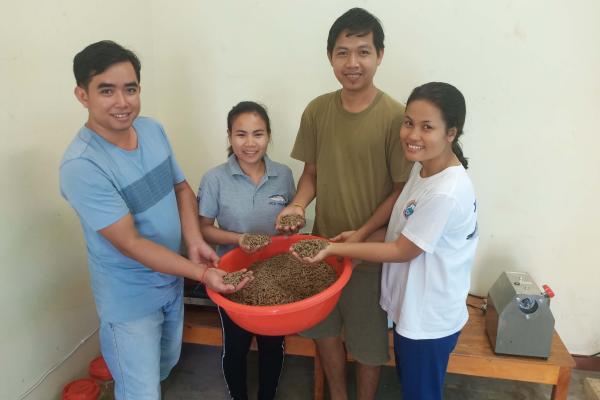Overview
This project aimed to accelerate the development of finfish mariculture in Cambodia through a South-South Triangular Cooperation (SSTC) between Cambodia (beneficiary partner), Indonesia (pivotal partner), and Australia (facilitating partner).
The project leveraged previous and ongoing ACIAR R&D investments in finfish mariculture at RICAFE Maros, South Sulawesi, and IMRAFE Gondol, Bali, to train researchers from the Department of Aquaculture Development, Fisheries Administration, Cambodia, in fish nutrition and feed development, larval rearing, and disease diagnosis.
A gendered value chain analysis of finfish mariculture in Cambodia found that women participate in all nodes of the value chain, except going on fishing boats catching the ‘trash’ fish. The fish farm is perceived as a family business, in which men, women, and youths participate equally. Women are dominant in trade-related nodes, both as traders of ‘trash’ fish and farmed fish. Men are more present in the fingerling trade and as farmed fish wholesalers.
This study identified a range of constraints to the continued development of sustainable mariculture in Cambodia, many of which are being addressed through the training provided under this project.
Project outcomes
- Increased technical knowledge in the relevant domains (larval rearing, fish nutrition, disease diagnostics).
- Created strong personal and professional linkages between Indonesian and Cambodian researchers.
- Increased teamwork and coordination within MARDeC and between MARDeC and FiA DAD in Phnom Penh.
- Increased leadership skills, particularly amongst those FiA staff nominated as mentors.
- MARDeC is seen (by FiA, external funding bodies, and industry) as a valuable resource supporting aquaculture industry development in Cambodia.
- Enhanced capacity is contributing to broader aquaculture development in Cambodia.
- Transferred knowledge and skills from trainees to other MARDeC and FiA DAD staff.







